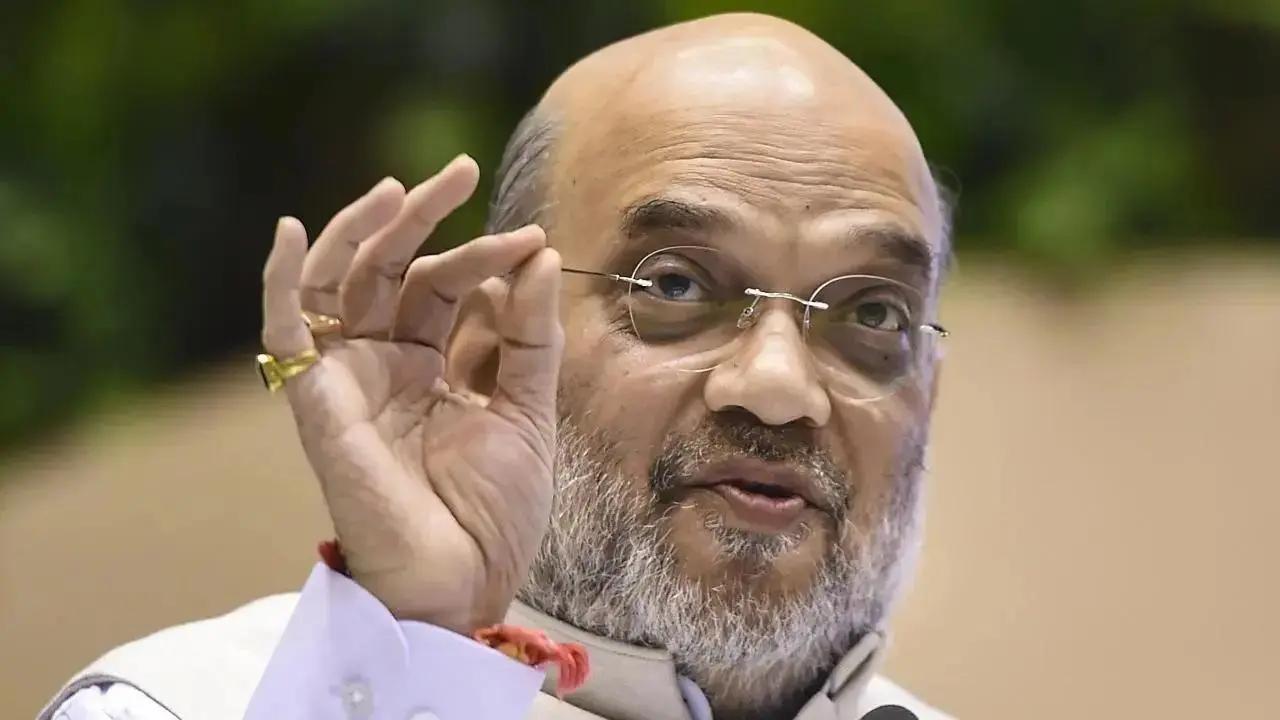Union Home Minister Amit Shah congratulated ISRO scientists on successful launch of satellite XPoSat to study black holes & neutron stars, on very first day of New Year.

Amit Shah/ File Pic
Key Highlights
- Amit Shah congratulated ISRO on successful launch of XPoSat to study black holes
- X-ray Polarimeter Satellite (XPoSat) to study Xray emission from various celestial sources
- India soared to new heights with soft landing of Chandrayaan-3, launch of Aditya-L1
Union Home Minister Amit Shah congratulated ISRO scientists on the successful launch of satellite XPoSat to study black holes and neutron stars, on the very first day of the New Year.
"Brightening up the cosmos in pursuit of knowledge on the very first day of 2024 you have proven yet again that your might is our pride," Amit Shah wrote on his X timeline.
"Congratulations to our @isro scientists on the historic launch of specialized astronomy observatory satellite XPoSat to study black holes and neutron stars in our galaxy."
At 9.10 am, the X-ray Polarimeter Satellite (XPoSat) to study X-ray emission from various celestial sources was launched successfully, and its lift-off was normal.
Addressing the scientists after the successful launch of the mission, the Indian Space Research Organisation (ISRO) chief S Somanath said the PSLV-C58 vehicle placed the satellite precisely into the intended orbit of 650 km, with a 6-degree inclination.
"From this point, the orbit of the PSLV will be reduced to a lower orbit, where the upper stage of the PSLV which is now described as POEM will carry out experiments with nine of the onboard payloads and that will take some time," Somanath added.
It is India's first observation of black holes, though other countries have done such studies earlier.
Somanath said it took 7 years to build this satellite.
"We want to create at least 100 scientists who can understand this aspect and contribute to the knowledge of black holes to the world," he added.
In a stellar display of prowess, India soared to new heights in 2023 with the successful soft landing of Chandrayaan-3 on the south pole of the moon and the launch of Aditya-L1, India's first solar mission.
These milestones not only secured India's standing in the global space economy but also fueled the engines for the private space sector in India.
Among other feats India now aims for are the Gaganyaan Mission in 2024-2025, setting up 'Bharatiya Antariksha Station' by 2035, and sending the first Indian to the Moon by 2040.
ADVERTISEMENT
This story has been sourced from a third party syndicated feed, agencies. Mid-day accepts no responsibility or liability for its dependability, trustworthiness, reliability and data of the text. Mid-day management/mid-day.com reserves the sole right to alter, delete or remove (without notice) the content in its absolute discretion for any reason whatsoever
 Subscribe today by clicking the link and stay updated with the latest news!" Click here!
Subscribe today by clicking the link and stay updated with the latest news!" Click here!







